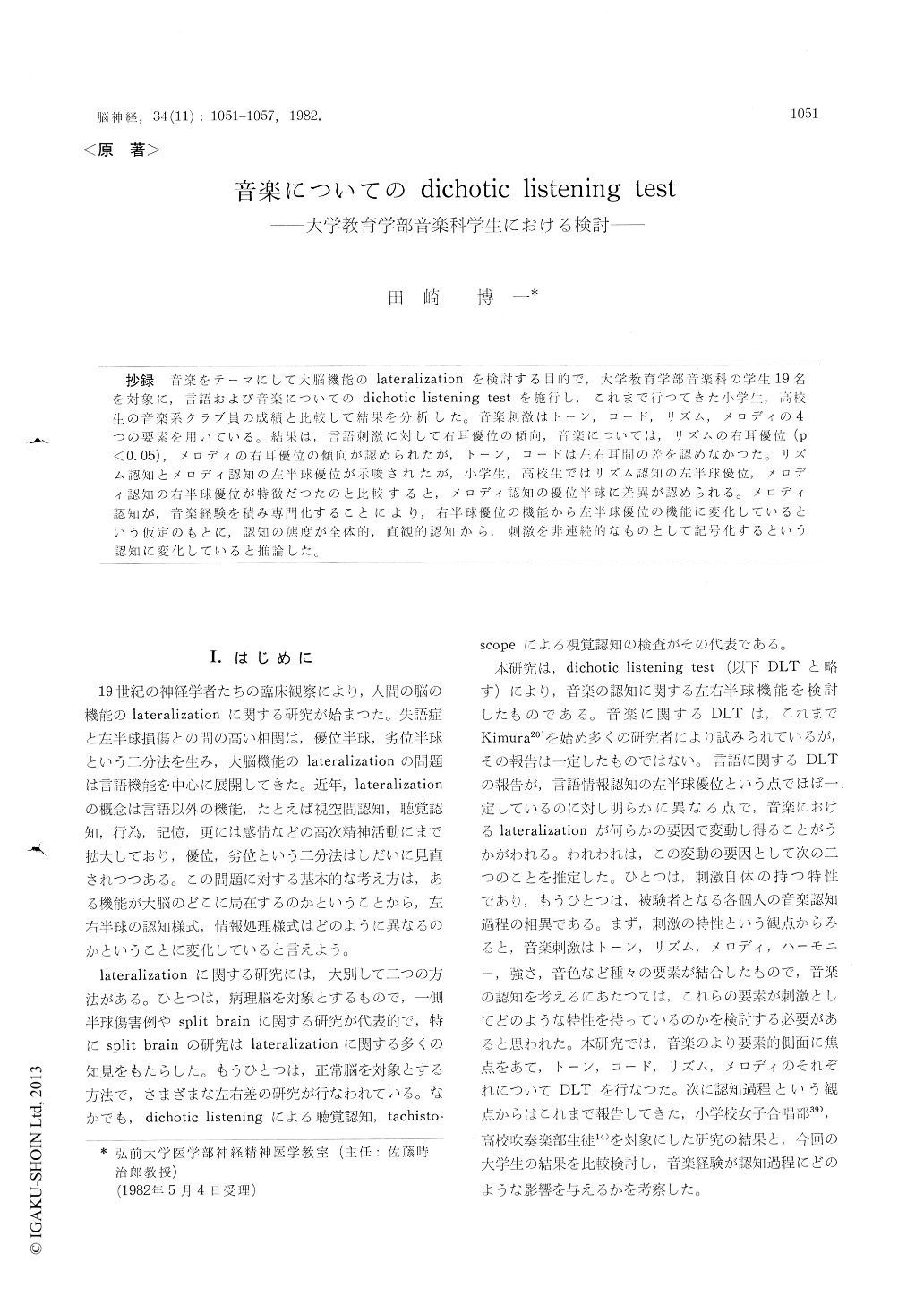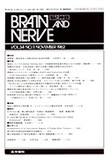Japanese
English
- 有料閲覧
- Abstract 文献概要
- 1ページ目 Look Inside
抄録 音楽をテーマにして大脳機能のlateralizationを検討する目的で,大学教育学部音楽科の学生19名を対象に,言語および音楽についてのdichotic listening testを施行し,これまで行つてきた小学生,高校生の音楽系クラブ員の成績と比較して結果を分析した。音楽刺激はトーン,コード,リズム,メロディの4つの要素を用いている。結果は,言語刺激に対して右耳優位の傾向,音楽については,リズムの右耳優位(p<0.05),メロディの右耳優立の傾向が認められたが,トーン,コードは左右耳間の差を認めなかつた。リズム認知とメロディ認知の左半球優位が示唆されたが,小学生,高校生ではリズム認知の左半球優位,メロディ認知の右半球優位が特徴だつたのと比較すると,メロディ認知の優位半球に差異が認められる。メロディ認知が,音楽経験を積み専門化することにより,右半球優立の機能から左半球優立の機能に変化しているという仮定のもとに,認知の態度が全体的,直観的認知から,刺激を非連続的なものとして記号化するという認知に変化していると推論した。
Nineteen right-handed college students making a speciality of music (9 males and 10 females), were tested in recognition of five kinds of dichotically presented stimuli ; originally recorded tones, chords, rhythms, melodies and digits. The tests compared the abilities of each ear to recognize double auditory stimuli presented simultaneously to both ears.
As for verbal stimuli, in the recognition of digits stimuli, right ear superiority was found.
As for musical stimuli, in the rhythm tests,the mean scores for the right ear were significantly higher than for the left ear. In the melody tests, the right ear superiority was found. In the tone tests and chord tests, the mean scores for the two ears were nearly the same.
As for sex differences, no significant differences between males and females in the recognition of five kinds of stimuli.
In our last reports, we stated that the primary school and senior high school students belonging to the musical club were tested in the recognition of the same stimuli, and it was suggested that the right hemisphere was superior for melodic recognition and the left hemisphere was superior for rhythmic recognition.
Compaired with our last reports, it is suggested that there is a difference between musically in-expert individuals and expert ones on the percep-tion of the melodic stimuli. In the early stage of musical training, the melodies are perceived as wholes and gestalts and processed in the right hemisphere. By contrast, musically expert in-dividuals perceives the melodies, breaking down tonal sequences and symbolizing. They process melodies in the left hemisphere.
It is suggested that the specialization of the music brings the shift of hemispheric lateralization of the perception of melodies.

Copyright © 1982, Igaku-Shoin Ltd. All rights reserved.


